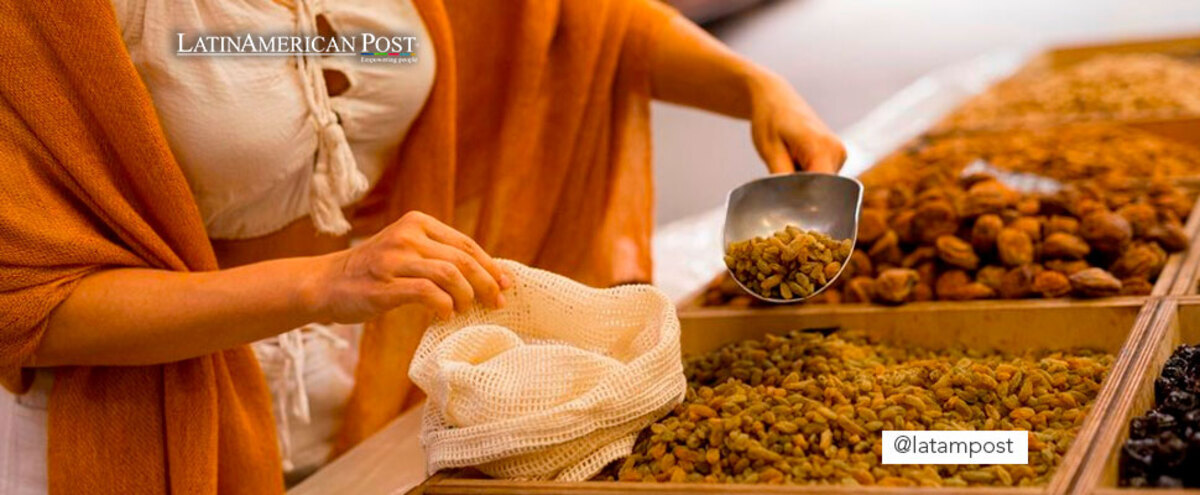Are Organic Products Better?
Research spanning over 40 years has shown that organic farming can match or exceed conventional farming systems. They also have health benefits, since they do not use components that can be toxic.

Photo: Freepik
LatinAmerican Post | Julieta Gutiérrez
Escucha este artículo
Leer en español: ¿Realmente son mejores los productos orgánicos?
Because agrochemical multinationals sell their products with the idea that more power will be obtained for the control of weeds and pests in crops; sales of pesticides, herbicides, and chemical fertilizers have generated profits of more than $4.8 billion for these companies, according to data analyzed by Unearthed, Greenpeace's investigative journalism platform.
However, the consequences that conventional agriculture leaves on human health and the environment are not at all favorable. According to the US Centers for Disease Control and Prevention (CDC), farmers are at high risk of lung diseases and certain cancers that are associated with the use of chemicals on crops. In fact, according to UN studies, pesticides cause 200,000 deaths a year.
In addition, crops that contain high concentrations of chemical inputs cause the destruction of flora and fauna in ecosystems. This has serious consequences for many pollinating species that contribute to food production, and, in turn, this negative impact on flora and fauna has caused chemicals such as glyphosate to reach the water used for human consumption.
Organic produce crops improve the health of people and the planet
The Rodale Institute, an American organization that supports research in organic agriculture, demonstrated, through a study of more than 40 years, the different impacts of organic and conventional grain farming systems.
The scientific data collected from this research concluded that organic agriculture equals or exceeds conventional management, since its processes are cheaper, provide more profitability and optimize the health of the environment and people.
We recommend you read: Wetlands Could be the Heroes in the Fight Against Global Warming
The study is known as the Farming Systems Trial (FST). This research consisted of comparing three main agricultural systems:
-
A conventional system based on chemical inputs.
-
An organic system based on leguminous plants.
-
An organic system based on manure.
In addition, the focus of each system was based on the production of corn and soybeans, since these types of crops represent 70% of the cultivated area in the United States. The results of the investigation carried out since the 80s, showed several findings of organic agriculture; as it was shown that these practices favor agro-economy, nature, farmers, consumers, and society. Some of these findings were evidenced in the following aspects:
Soil health
The soil is the basis for the production and cultivation of food, for this reason, its health is essential. The data from the (FST) indicated that the state of the soil in organic systems increases with time, while the soil in conventional crops tends to remain unchanged.
Increased carbon sequestration
Healthy soil helps to sequester carbon and keep it out of the atmosphere. In addition, organic systems present multiple contributions of carbon in the soil, the essential element for life. Thanks to the fact that the presence of carbon in organic crops is significantly higher than in the conventional system, the microbial biomass also increases. This is very favorable, since this organic matter is essential for the development of crops, because it is in charge of avoiding plant diseases.
Better water infiltration
Data collected from 2019 to 2021 on each of the (FST) systems demonstrated that organic systems absorb water at a faster rate than conventional practices. This protects crops from drought because moisture is more easily retained.
So, the FST data showed that organic crops have a higher yield (by 30%) during times of extreme weather.
Greater economic profitability
An analysis of the accumulated labor of each of the crops in the farming systems trial from 2008 to 2020, showed that the organic manure system is the most profitable practice for farmers. In fact, both organic systems cost significantly less than conventional management.
Supporting organic producers is building a collective benefit
Consuming organic products has great advantages over conventional crops. Here we share the main benefits:
-
They are healthier: organic foods are free of toxic residues that come from chemical inputs. Therefore, natural products have more nutrients thanks to the use of natural fertilizers. This presence of nutrients, vitamins, minerals, and antioxidants helps to optimize the immune system, improves the quality of sleep and reduces the possibility of suffering from diseases.
-
They favor fair trade: consuming organic products helps natural food producers receive a fair payment for their work, and it is also much cheaper for the final consumer, since there is no intermediary involvement.
-
It does not harm ecosystems: organic practices increase biodiversity, since they preserve native seeds that help preserve the quality of food and soil. In addition, organic production lowers energy costs.




